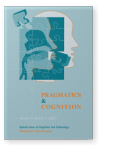Robotics, biological grounding and the Fregean tradition
Marti Hooijmans | Faculty of Philosophy, Department of Theoretical Philosophy, University of Groningen, The Netherlands
Dynamic, embodied and situated cognition set up organism-environment interaction — agency for short — as the core of cognitive systems. Robotics became an important way to study this behavioral kernel of cognition. In this paper, we discuss the implications of what we call the biological grounding problem for robotic studies: Natural and artificial agents are hugely different and it will be necessary to articulate what must be replicated by artificial agents such as robots. Interestingly, once this issue is explicitly raised, it seems that a full replication of biological features is required for cognition itself to be plausibly cast as a biological phenomenon. Several issues come to the fore once one takes this implication seriously. Why does a full biological interpretation of cognition remain so controversial? How does this impact the relevance of robotics for the study of cognition? We try to articulate and ease the various tensions that arise from this biological scenario.
Cited by (3)
Cited by three other publications
Kelty-Stephen, Damian G. & Madhur Mangalam
2022.
Turing’s cascade instability supports the coordination of the mind, brain, and behavior.
Neuroscience & Biobehavioral Reviews 141
► pp. 104810 ff.

Keijzer, Fred
2015.
In conversation with Fred Keijzer.
Journal of Landscape Architecture 10:1
► pp. 78 ff.

Riemer, Nick
2013.
Conceptualist semantics: explanatory power, scope and uniqueness.
Language Sciences 35
► pp. 1 ff.

This list is based on CrossRef data as of 21 september 2024. Please note that it may not be complete. Sources presented here have been supplied by the respective publishers.
Any errors therein should be reported to them.
